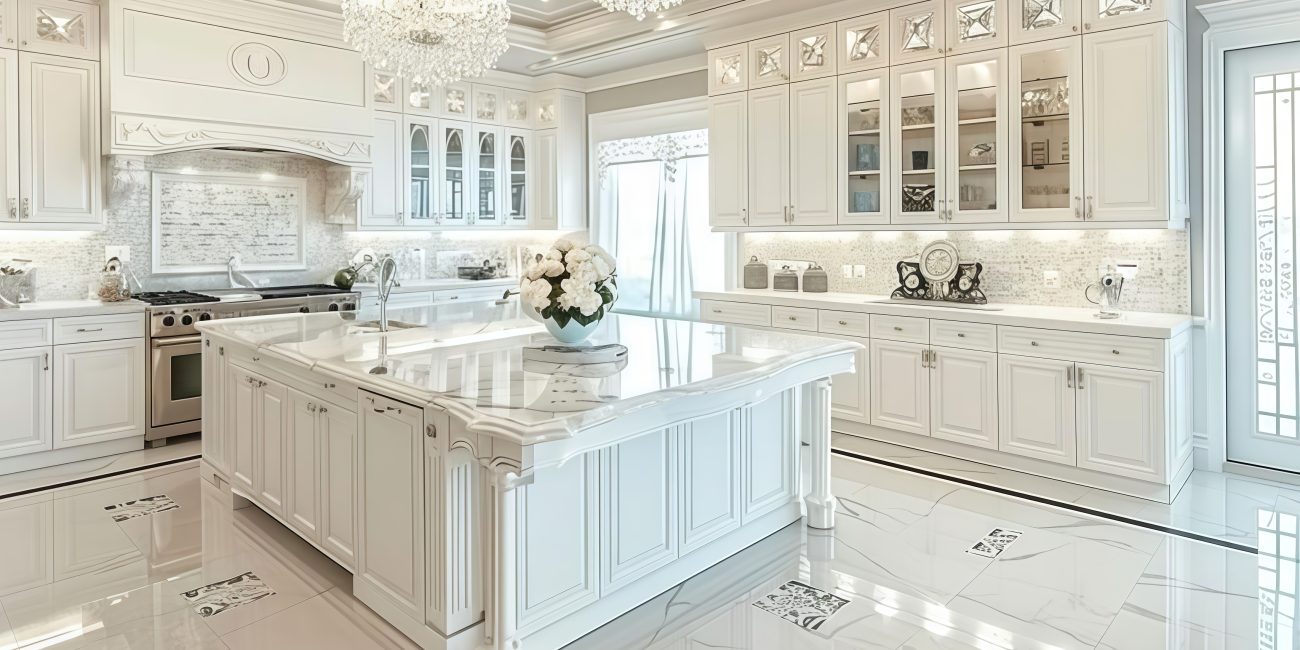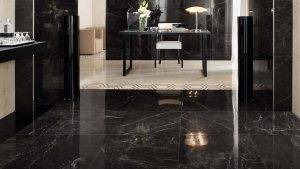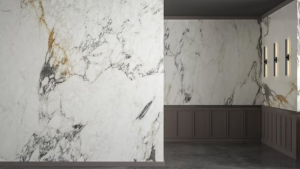If you’re wondering how to get stains out of marble, the answer is to act fast and use the right cleaning method. Stains from oil, coffee, wine, or even lemon juice can easily mark marble if ignored. The best solution is using gentle cleaners like baking soda poultice, mild soap, or marble-safe powders to lift stains without damage.
Marble adds elegance to kitchens and bathrooms, but it needs extra care. With proper cleaning, sealing, and daily maintenance, you can protect your marble surfaces, restore their shine, and keep them spotless for years.
How to Get Stains Out of Marble
Food, tea, coffee, or wine often leaves brownish or pink marks. To clean:
- Mix hydrogen peroxide (12%) with a few drops of ammonia.
- Apply gently on the stain using a cloth.
- Let it sit for a few minutes.
- Rinse with warm water and dry completely.
Do not leave hydrogen peroxide on dark marble for too long—it may lighten the stone.
Why Does Marble Stain So Easily?
Before learning how to remove stains, it’s important to understand why marble is sensitive.
- Porous nature: Marble has tiny pores that absorb liquids and oils.
- Acid sensitivity: Lemon juice, vinegar, or even tomato sauce can cause etching.
- Soft surface: Unlike granite, marble scratches and dulls more easily.
This means marble requires gentle care and quick cleaning to stay beautiful.
Common Types of Stains on Marble
Not all stains are the same. Knowing what caused the stain helps you choose the right cleaning method.
- Oil-based stains: Grease, butter, makeup, or cooking oil.
- Organic stains: Coffee, tea, wine, fruit, or food spills.
- Rust stains: From metal cans, tools, or nails left on marble.
- Water spots: Caused by hard water and soap scum.
- Acid stains (etching): From lemon juice, vinegar, or cleaning products.
Each stain type needs a specific approach.
How to Remove Stains from Marble
Stains are common. Here’s how to remove them:
- Mix baking soda with water.
- Spread the paste over the stain.
- Cover with plastic wrap and tape the edges.
- Leave it for 24 hours.
- Wipe clean and rinse with water.
Repeat if necessary. Baking soda works by pulling out the oil from marble pores.
How to Get Rust Stains Out of Marble
Rust stains are tough and may require special products.
- Use a commercial marble-safe rust remover.
- Apply directly to the stain following the product instructions.
- Rinse thoroughly with water.
Avoid bleach or strong chemicals, as they can worsen damage.
How to Get Water Stains Out of Marble
Hard water leaves cloudy spots on marble. To fix this:
- Spray a little water on the spot.
- Rub gently with a soft microfiber cloth.
- For tough spots, use a marble-safe cleaner.
Prevention tip: Always dry marble after cleaning.
How to Remove Acid Stains from Marble (Etching)
Acid stains (etch marks) appear dull or white. If you’re searching for how to remove acid stain, here’s what to do:
- Use a marble polishing powder or paste.
- Dampen the surface slightly.
- Rub the powder gently in circular motions with a soft cloth.
- Rinse and dry.
For deep etching, professional restoration may be needed.
DIY Poultice for Stubborn Stains
A poultice is a paste used to draw out deep stains.
How to make a poultice:
- Mix baking soda (or talc powder) with water until it’s like peanut butter.
- Spread over the stain.
- Cover with plastic wrap.
- Leave for 24–48 hours.
- Wipe and rinse.
Poultices work for oil, wine, and coffee stains.
Daily Care Tips for Marble
Prevention is better than a cure. Here’s a simple daily routine:
- Wipe spills immediately with a soft cloth.
- Clean with mild soap and warm water.
- Dry the surface after cleaning.
- Use coasters under drinks.
- Place mats under hot pans.
If you also own marble furniture, check our guide on how to clean a marble table for extra care tips.
Deep Cleaning and Sealing Marble
Even after stain removal, sealing marble helps prevent future issues.
Steps to seal marble:
- Clean the marble thoroughly.
- Apply a marble sealer evenly.
- Let it sit for 15 minutes.
- Wipe off extra sealer.
- Reapply every 6–12 months.
If you maintain countertops, read our guide on how to clean marble countertops for step-by-step cleaning and sealing.
Mistakes to Avoid While Cleaning Marble
- Don’t use vinegar, lemon juice, or acidic cleaners.
- Don’t use rough scrub pads or steel wool.
- Don’t let stains sit for too long.
- Don’t forget to re-seal marble regularly.
Professional Help for Stubborn Stains
Some stains are too deep to handle at home. In such cases, hire professionals who specialize in marble polishing and restoration. They use advanced tools to restore shine and remove etching.
Conclusion
Marble is elegant but needs careful maintenance. Now that you know how to get stains out of marble, you can handle oil, wine, coffee, and even acid stains with ease.
With regular cleaning, quick action on spills, and sealing, your marble will remain spotless and shiny for years.
Frequently Asked Questions
What removes stains from marble the best?
Baking soda poultice is the best DIY solution for most stains. For acid stains, use marble polishing powder.
Can I use bleach to clean marble stains?
No. Bleach damages marble. Always use mild soap, baking soda, or marble-safe cleaners.
How do I get coffee stains out of marble?
Use hydrogen peroxide with a drop of ammonia. Let it sit, rinse, and dry.
How often should I seal marble to avoid stains?
Seal at least once a year, or every 6 months in busy areas like kitchens.
What should I avoid when cleaning marble?
Avoid acidic cleaners, harsh scrubbing pads, and leaving spills for too long.






